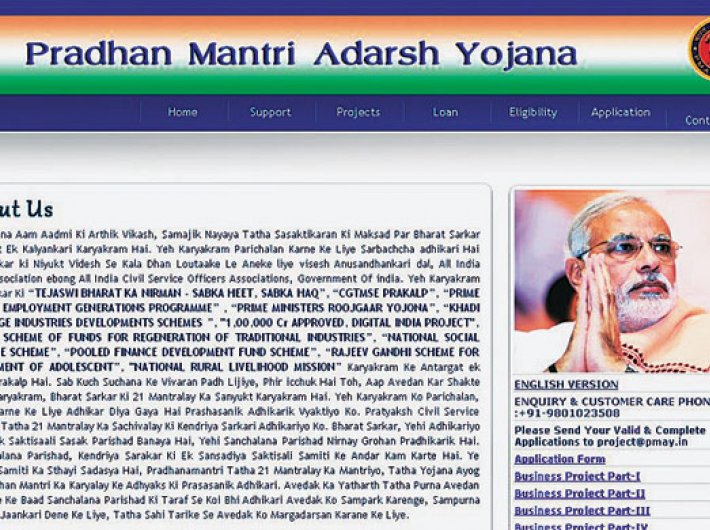As India increasingly becomes digitally connected a robust monitoring of internet is mandatory
It was bound to happen. Narendra Modi is most active on internet world and somebody tried to misuse that to con gullible Indians.
Dellhi Police have busted a fake website of the Prime Minister's Office (PMO) under the name ‘Pradhan Mantri Adarsh Yojna’ and arrested the mastermind for cheating several people on the pretext of providing them government loans. Sudipta Chatterjee, the 43-year-old mastermind of the racket, was arrested on Saturday from Howrah, where the network had its base.
He created the fake website (www.pmay-gov.in), projected it as a government one and hosted it on a server based in the US. To confuse the users, the URL had the reflection of a government website and it was listed on priority with Google. Whenever, any online surfer would search this website would figure in the top hits.
Chatterjee had also created other domains by the name of bharat-sarkar.in, govindia.in, CGTMSE-govt.in, CGTMSE-gov.in. He also created similar e-mails by the name of goi@developmentofindia.in and project@developmentofindia.in.
According to the police the fake website was created with the aim of cheating people of their money on the pretext of providing loans. Chatterjee succeeded in duping over 200 innocent people of lakhs of rupees.
However, the question we want to ask is why is that law enforcement agencies act only after hundreds are cheated and somebody complains. In this case it was the PMO itself that had to send a complaint, and after that the Delhi police got into action.
With a boom in e-governance and schemes like jan dhan yojan, more and more people are entering online business involving money. Unless a person is tech-savvy, there is always a scope for falling victim to online fraud, even the educated are not an exception.
In such a scenario, it becomes important that various organizations, both public and private, should hold awareness programmes about online business. Interestingly, Chatterjee had received a call from officials from nic.in (Indian govt’s internet administrator) who asked him to pull down one of the e-mails that was similar to the government mail id. However, the official or the organization did not register a complaint, thus giving a long rope to the conman.
Hence, the most important task for the law enforcement agencies is to be pro-active. They have to scan the web world for fraudsters, constantly monitor the internet for fake websites, mail ids and news. For this the public may have to sacrifice bit of online privacy but in the end it will be beneficial for large number of people.
An active cyber cell is must for the country as connects with Modi’s Digital India.
A user’s guide for online business
Types for frauds
- Work-at-home scams
- Weight loss Claims
- Lotteries scams
- Fake cheque scams
- Imposter scams
- Mystery shopper scams
- Miracle cures
- Debt relief scams
- Pay-in-advance credit offers
- Investment schemes
- The "Nigerian" email scam
- Money transfer scams
- Tech support scams
Check before you press enter
Know who you’re dealing with
Try to find a seller’s physical address and phone number. With internet phone services and other web-based technologies, it’s tough to tell where someone is calling from. Do an internet search for the company name and website, and look for negative reviews.
Online transfer of money
Con artists often insist that people wire money, especially overseas, because it’s nearly impossible to reverse the transaction or trace the money. Don’t wire money to strangers, to sellers who insist on wire transfers for payment, or to anyone who claims to be a relative or family friend in an emergency who wants to keep the request a secret.
Read your monthly bank statements
Scammers steal account information and then run up charges or commit crimes in your name. Dishonest merchants bill you for monthly “membership fees” and other goods or services without your authorization. If you see charges you don’t recognize or didn’t okay, contact your bank.
Don’t send money to someone you don’t know
Never pay fees now for the promise of a big pay-off later — whether it’s for a loan, a job, or a so-called prize.
Don’t reply to messages asking for personal or financial information
That goes whether the message comes as an email, a phone call, a text message, or an ad. Don’t click on links or call phone numbers included in the message, either. It’s called phishing. The crooks behind these messages are trying to trick you into revealing sensitive information. If you got a message like this and you are concerned about your account status, call the number on your credit or debit card — or your statement — and check on it.

